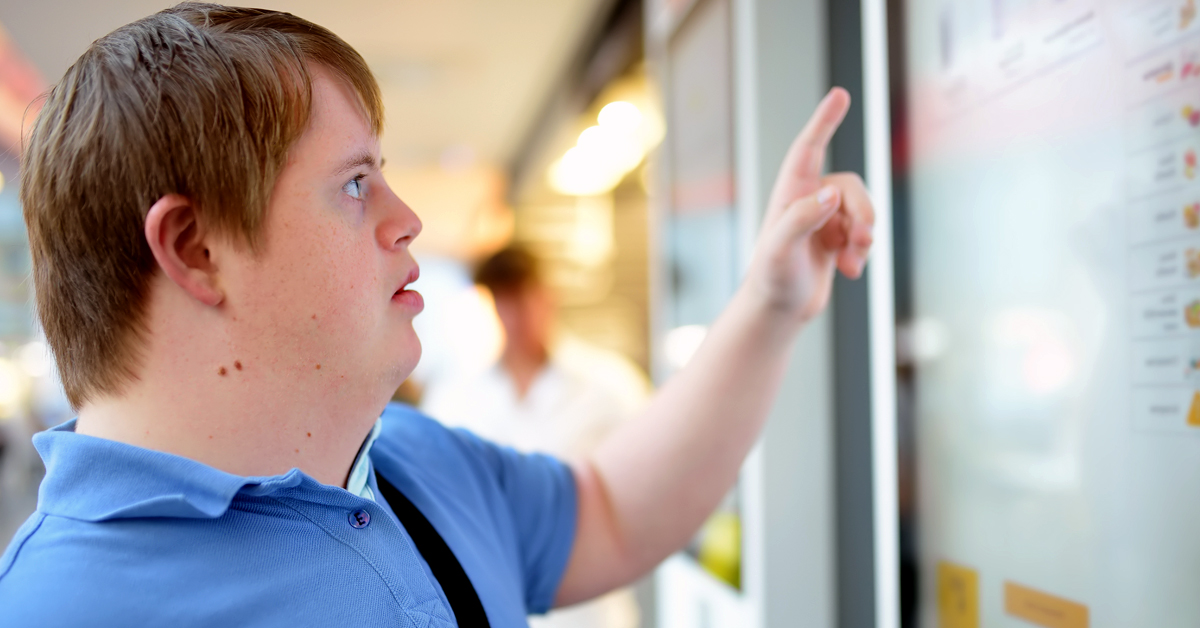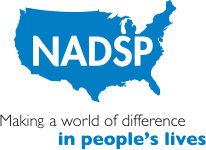
Respect the Work, Protect the People: Direct Support Professionals and Medicaid Are Under Siege
Written by Joseph M. Macbeth, President and CEO, National Alliance for Direct Support Professionals
Imagine a country where people with intellectual and developmental disabilities (IDD) are stripped of the supports that help them live independently, families are pushed to crisis, and a dedicated workforce is decimated by policy decisions made far from the lives they impact. That is the bleak future we face if Congress allows the House-passed Reconciliation Act to become law.
As President and CEO of the National Alliance for Direct Support Professionals, I represent over 1.5 million workers who support people with disabilities every day. These Direct Support Professionals (DSPs) are not just caregivers—they are educators, problem-solvers, crisis managers, and trusted allies. Their work is complex, requiring judgment, adaptability, deep empathy, and professional skill. Yet they remain underpaid, undervalued, and at risk of being legislated into collapse.
The Reconciliation Act’s proposed $880 billion cut to Medicaid would destroy the HCBS system as we know it. Medicaid will result in longer waitlists for services, layoffs of DSPs, and ultimately, the re-institutionalization of people with disabilities—undoing decades of progress.
The House passed Reconciliation Act will require that states recertify Medicaid recipients every six months. On its face, this might sound like routine accountability. In reality, it’s a bureaucratic trap. It disproportionately harms people with disabilities, many of whom have lifelong conditions that do not change from year to year—let alone every six months. It also burdens already strained state agencies, causing costly administrative overhead and unnecessary coverage loss.

The most harmful provision, however, may be the imposition of work requirements. A new report from the Commonwealth Fund and the George Washington University Milken Institute School of Public Health makes the consequences chillingly clear: if implemented, up to 5.2 million Americans could lose Medicaid coverage in 2026 alone—not because they’re unwilling to work, but because they can’t navigate confusing reporting systems or lack internet access. This includes thousands of DSPs themselves, many of whom rely on Medicaid or CHIP for their own health coverage.
These policies are a solution in search of a problem. Studies, including by the Congressional Budget Office, confirm that Medicaid work requirements do not lead to increased employment. Instead, they trigger massive health coverage losses and cause real economic harm.
According to the GW Milken analysis, these changes could lead to $59 billion in lost state GDP and as many as 449,000 jobs eliminated across sectors—healthcare, retail, food service, and construction among them. Even states that did not expand Medicaid, like Texas and Florida, would feel the impact due to economic spillover. Texas alone could lose up to $564 million and nearly 4,000 jobs. States will face multi-billion dollar shortfalls in tax revenue, forcing them to cut services or raise taxes. This isn’t fiscal responsibility—it’s fiscal sabotage.
And who suffers most? The people DSPs support every day. Children with autism, adults with cerebral palsy, individuals with cognitive disabilities. They depend on HCBS not for luxury, but for life itself. These services are not optional—they are vital. Slashing Medicaid will leave families desperate, emergency rooms overcrowded, and people with disabilities abandoned.
Direct support professionals already face enormous challenges. They work long hours, often without paid time off. Many work multiple jobs to make ends meet. In a recent New York survey of nearly 4,000 DSPs, half reported housing or food insecurity. And yet, these professionals show up every day. They help people get to jobs, cook meals, manage medications, reconnect with long-lost family members, and live full, independent lives. This is not entry-level work—it is essential, skilled labor that requires recognition, investment, and respect.
We know what works. NADSP’s E-Badge Academy, a nationally recognized certification program, helps DSPs build their skills, demonstrate competence, and take pride in their profession. In states like New York, Pennsylvania, Georgia, and Alaska, we’ve seen real momentum—backed by American Rescue Plan funding. But that progress will be wiped out if Medicaid is gutted.
We need more than praise—we need policy. That begins with stopping these harmful Medicaid cuts. It also means securing a Standard Occupational Classification for DSPs to properly count, analyze, and support this workforce. It means building career ladders with meaningful wage increases tied to verified skills. It means treating DSPs with the same dignity we expect them to provide to others.
The stakes could not be higher. If Medicaid cuts pass, people with disabilities will lose their homes, supports, and safety. DSPs will leave in droves. Families will be left to fend for themselves. This is not just a policy debate—it’s a question of who we value in our society.
To every lawmaker considering this proposal: remember who you are choosing to harm. And to every Direct Support Professional reading this: your work is not invisible. You are essential. And this fight—for fair pay, for recognition, for Medicaid—is our fight. Together, we must make our voices heard.
We Need Your Voice
Respect the Work, Protect the People.
You May Also Be Interested In …

DSP Advocacy During Developmental Disabilities (DD) Awareness Month

NADSP Policy Update: Federal Funding Update: FY2026 Appropriations and Potential Shutdown

NADSP Policy Update: Bipartisan Proposal Aims to Protect Essential Education Programs

